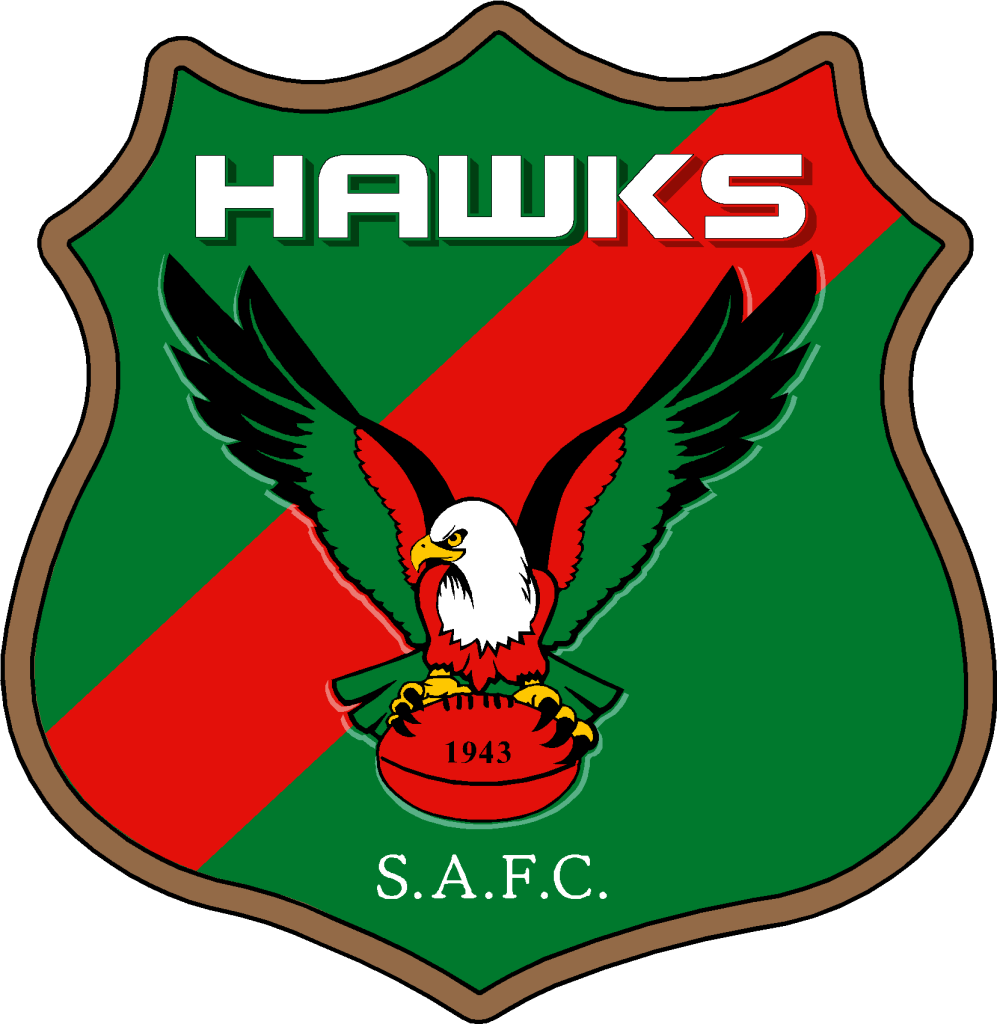Where We All Belong – Building Hawks for Life
We are the Hawks — forged in effort, united in spirit.
Bound together by more than colours or postcode, we are united by choice: the choice to stand side by side in green and gold, to give our all for each other, and to play for something greater than ourselves.
When you join the Hawks, you join a community that lives its values - Care, Courage, Pride - in every game, every training, every handshake. Here, potential is nurtured, mates become teammates, and teammates become lifelong friends.
From your first training to your hundredth game, you are part of something bigger than yourself. Together we are the Hawks — and we stand as one.
🏉 Boys Program – Age Progression
U13 Boys – Playing for Each Other
On-Field:
- Commit to your role in the team structure
- Back up teammates in contests
- Keep energy and effort high for all quarters
- Support teammates after mistakes
Off-Field:
- Look out for teammates; check in when needed
- Represent the Hawks well at school and online
- Take feedback positively and work on improvements
U14 Boys – Growing Your Game
On-Field:
- Develop position-specific skills
- Understand team structures and roles
- Show leadership through actions
- Compete hard but fair at all times
Off-Field:
- Balance football with school commitments
- Support younger Hawks at their games
- Take responsibility for preparation and recovery
U15 Boys – Building the Legacy
On-Field:
- Lead by example with effort and attitude
- Mentor younger or less experienced players
- Execute game plans under pressure
- Show courage in contested situations
Off-Field:
- Support club events and fundraising
- Show leadership in school and community
- Maintain high standards of behavior
U16-17 Boys – Leading the Hawks
On-Field:
- Drive team standards in training and games
- Lead communication and organization
- Be a role model for younger teams
- Prepare for senior football transition
Off-Field:
- Actively mentor junior Hawks
- Take on leadership roles in the club
- Protect and grow the Hawks culture
- Model responsible social media use
Parents & Guardians (Boys Program):
- Encourage effort, resilience, and accountability
- Let coaches coach — avoid sideline instructions
- Support team bonding activities and club events
- Help manage time between school, sport, and social commitments
- Model Hawks values from the boundary
👩 Girls Program – Age Progression
Girls face unique challenges in football including confidence barriers, social pressures, and competing commitments. Our program addresses these through inclusive coaching, body-positive support, and emphasis on enjoyment and development.
U13 Girls – Playing for Each Other
On-Field:
- Commit to your role and support each other
- Back up teammates in contests safely
- Keep energy high and celebrate hard work
- Build confidence through encouragement
Off-Field:
- Check in if teammates are upset or injured
- Represent Hawks well in all settings
- Balance sport with other commitments
- Create inclusive team environment
U14 Girls – Growing Together
On-Field:
- Develop skills at individual pace
- Communicate and encourage others to be heard
- Support teammates building confidence
- Focus on enjoyment and improvement
Off-Field:
- Support new participants joining the team
- Ensure everyone feels included
- Celebrate all contributions equally
- Address wellbeing proactively
U15 Girls – Building the Legacy
On-Field:
- Lead by example with effort and attitude
- Mentor younger or newer players
- Work together implementing game plans
- Encourage each other's growth
Off-Field:
- Advocate for women's football
- Show leadership as a Hawk
- Create welcoming environment for all
- Address physical and emotional wellbeing
U17/U19 Girls – Leading the Hawks
On-Field:
- Drive team standards inclusively
- Foster safe environment for all
- Challenge negative stereotypes
- Play hard, fair, and support wellbeing
Off-Field:
- Champion women and girls in football
- Take on club leadership roles
- Support mental health awareness
- Transition to senior women's football
Parents & Guardians (Girls Program):
- Encourage resilience, accountability, and empathy
- Provide safe environment for girls to speak up
- Challenge stereotypes and support aspirations in sport
- Watch for signs of low confidence and provide support
- Advocate for equal opportunities and resources
- Support long-term participation beyond youth football
Key Differences in Girls Program
Equipment & Rules:
- U13 Girls: Size 3 ball, 14 players
- U15-17 Girls: Size 4 ball, 16 players
- Modified contact rules in younger ages
Coaching Approach:
- Body-positive support and language
- Emphasis on inclusion and belonging
- Address confidence barriers proactively

